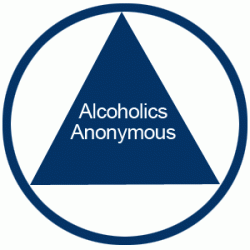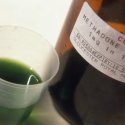Addiction Advances Haven’t Made AA Obsolete
Although they approach the challenge of addiction differently from scientists, 12-step programs still have a therapeutic role in helping human beings.
Alcoholics Anonymous may have pioneered the concept of alcoholism as a disease, but will scientific research that proves the point eventually make AA obsolete?
Studies that reveal brain and genetic links to addiction seem to suggest that future cures may come in pill boxes or, even better, in vials of vaccine that prevent it to begin with. Surely, that could impact 12-step programs that have been the prototype of recovery regimes for three quarters of a century.
It’s an intriguing issue invited by imaging studies that have identified differences in addicts’ brains, including a 2007 British report headed by Cambridge nueroscientist Jeff Dalley that showed rats with reduced dopamine receptors are more likely to become compulsive users of cocaine. Dopamine is a neurotransmitter associated with emotion and motivation. If the same deficiency identified in rats is found in humans, scientists say, some of us are born with a predisposition to addiction.

Alcoholics Anonymous is still running strong.
Two million alcoholics in 180 countries around the world are members of AA, according to its Web site. There are countless others who attend meetings of Narcotics Anonymous and Cocaine Anonymous, and other progeny of AA. So, what’s the implication of this research on these vast networks of fellowship recovery programs?
Not as much as you’d think.
“We’ve had a great deal of emphasis on the neuroscience of addiction. Some people mistakenly think that would mean there’s no role for social support in recovery,” said Wilson Compton, senior scientist at the National Institute on Drug Abuse, a department of the National Institutes of Health.
While current and future medications may improve treatment of addiction by blocking intoxication, easing withdrawal symptoms and inhibiting cravings, they’ll supplement 12-step programs rather than replace them.
“We don’t have the kind of medications that turn on or turn off a disease like alcoholism or drug addiction,” Compton said. “And I don’t think we will in the foreseeable future have such a medication.”
Medication can help people make the changes necessary to manage their addiction, and for many of those people, “recovery support services are absolutely essential,” Compton said.
When AA was founded in 1935, it embraced the theory proposed two centuries earlier by Dr. Benjamin Rush: that alcoholism was a biological malady beyond the control of the addict. Dr. Elvin Jellinek confirmed the theory in a landmark 1960 book, Disease Concept of Alcoholism. The concept was subsequently endorsed by major medical associations and eventually became conventional wisdom — though it’s not without its fierce critics.
But AA’s disease model was as much ideology as biology, meant as counterpoint to the popular belief that alcoholism was a moral lapse or a failure of will. The sophisticated studies of today are attempting to identify the actual mechanism of the disease, which reinforces the original AA model but also raises hopes for a “cure” through medical intervention — false hopes, it appears, at this point.
Mark Willenbring, director of treatment and recovery research at the National Institute on Alcohol Abuse and Alcoholism, said the brain studies need to be “taken with a grain of salt.”
“Most of what you hear are extrapolations from studies on rodents. Rodents are not humans. And there are no rodent alcoholics. In the wild, you don’t see rodents being drunk or snorting cocaine.”
Not to mention that the research, as presented in the mainstream media — consider the portrayal of a synapse that many of us have seen — “grossly oversimplifies the brain,” Willenbring said, leading to false assumptions about the role of genetics and brain structure in the treatment of addiction.
“There are more neuronal connections in the brain than there are stars in the universe.
“The most important functions of the brain can’t be directly perceived because they’re a result of the interaction of multiple, probably hundreds of different places in the brain all at once. Our ability to model these things is extremely primitive,” Willenbring said.
Nor are there one or two abnormal genes that “cause” addiction that could simply be fixed.
“People tend to think there’s a gene or a couple of genes and if you have those, it’s determinative. It’s not determinative,” Willenbring said.
“The genetics are very complex involving hundreds of genes, each contributing a tiny bit to the overall variability in expression.”
Willenbring emphasizes that the environment plays a crucial role in determining whether genes will be expressed at all. And life experience also impacts the brain itself, he said, changing brain structure and function in ways that impact behavior, which helps explain why interventions such as AA can be effective even without other treatment.
“We learn in various ways and one of them is by seeing somebody else do something. There’s a specific neurological system called mirror neurons involved in this kind of learning. So AA newcomers get to see what sober people are like,” he said.
AA also “provides a social context of support and understanding, and an alternative social group distinct from the drinking group. … There’s lots and lots of folk wisdom, collective wisdom about how to successfully stop and stay stopped.”
And the experience of attending regular meetings changes addicts’ brains, Willenbring said.
“If people change their behavior and outlook and attitudes, then of course it’s reflected in changes in the brain,” he said.
Alcoholics Anonymous would not comment for this article, adhering to its policy of anonymity and avoidance of all public discourse. AA takes no positions on any controversy and, in fact, has no executive or figurehead to speak for the organization at all.
“We’re just amateurs here,” a staff spokesperson said when asked for comment.
AA need not defend its role in recovery anyway. Clearly, there’s no belief that such 12-step fellowship programs will ever become obsolete.
“When I treat patients with alcohol dependence, I routinely recommend medications, and I also recommend AA,” Willenbring said.
“There’s no incompatibility at all.”
source: Miller-McCune Online Magazine
